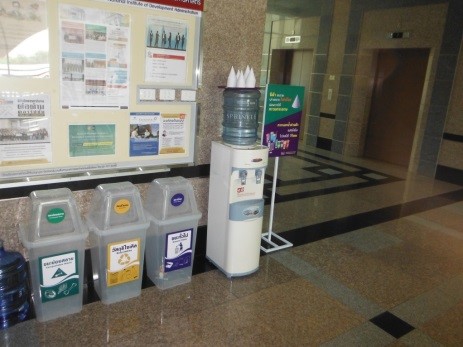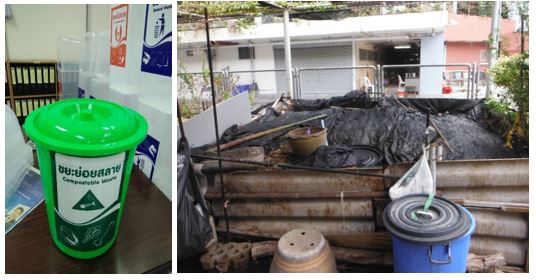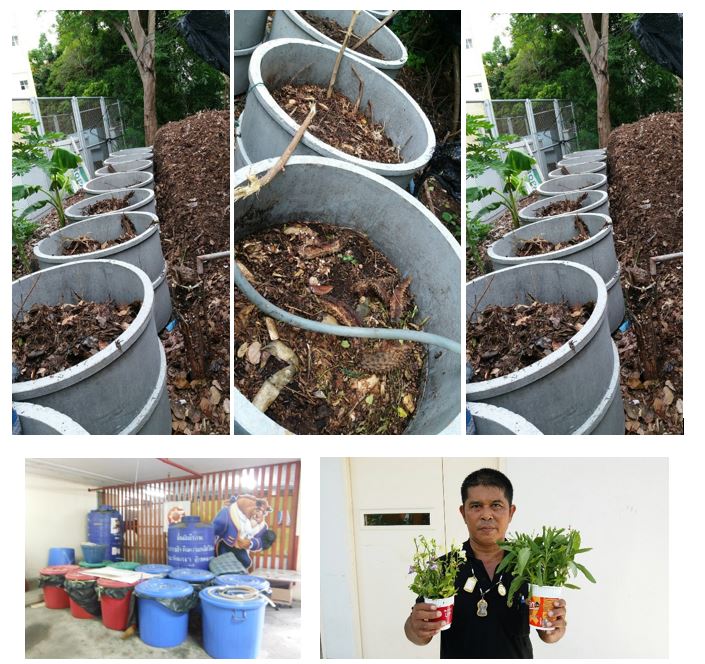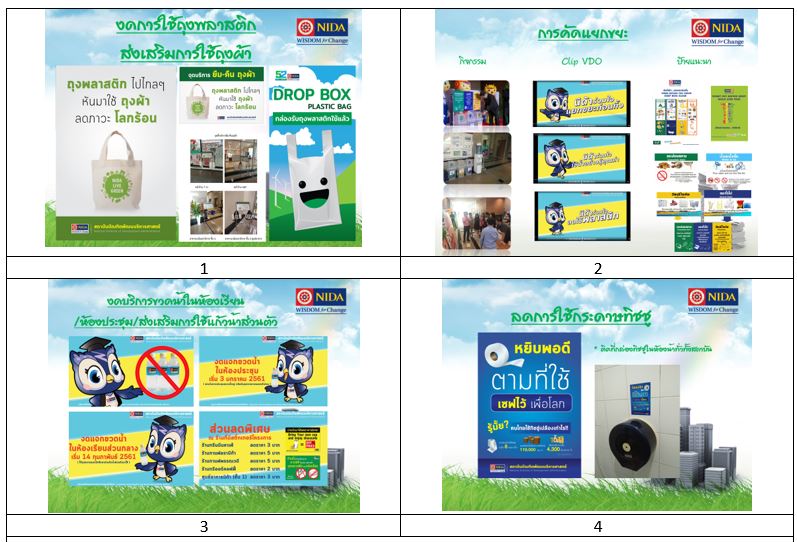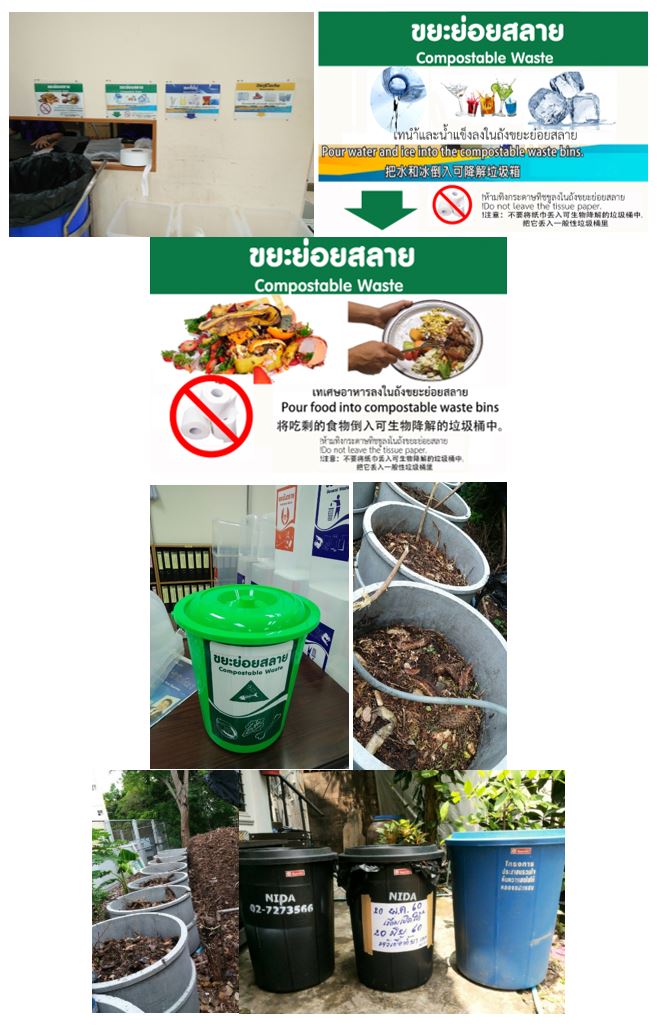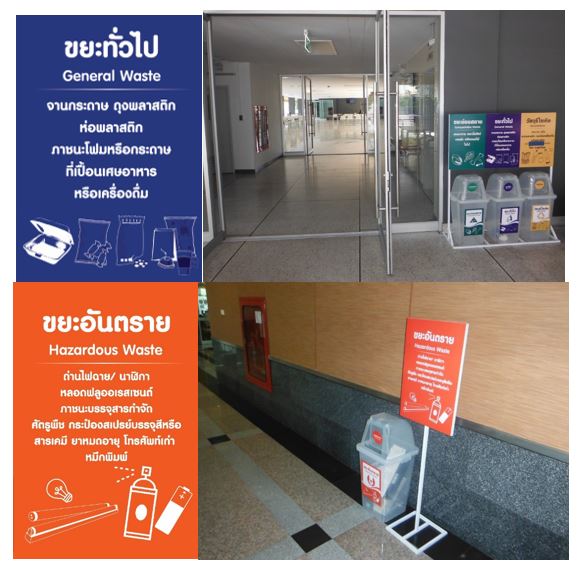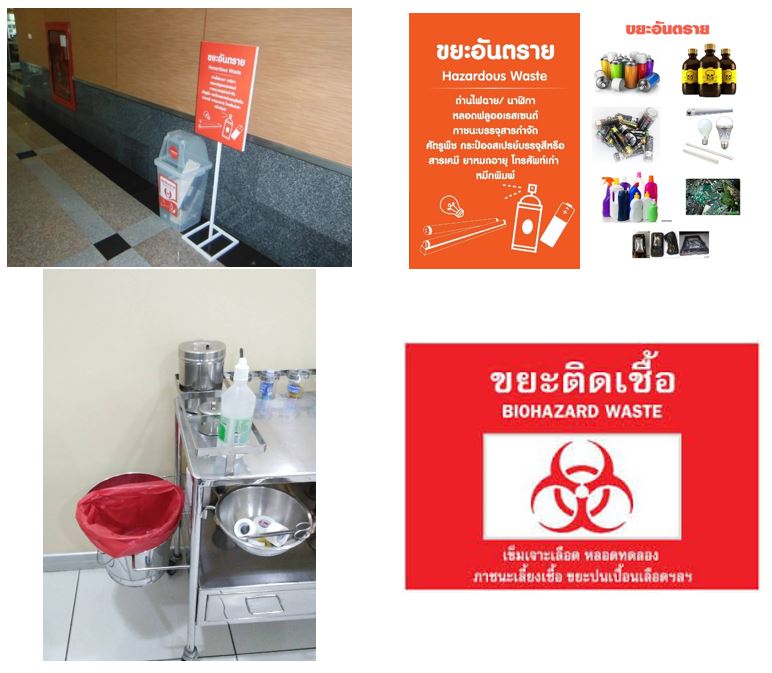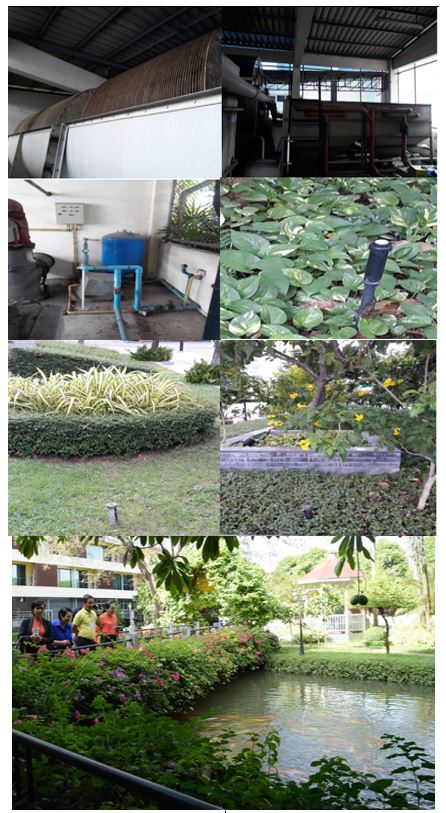Recycling Program for University Waste
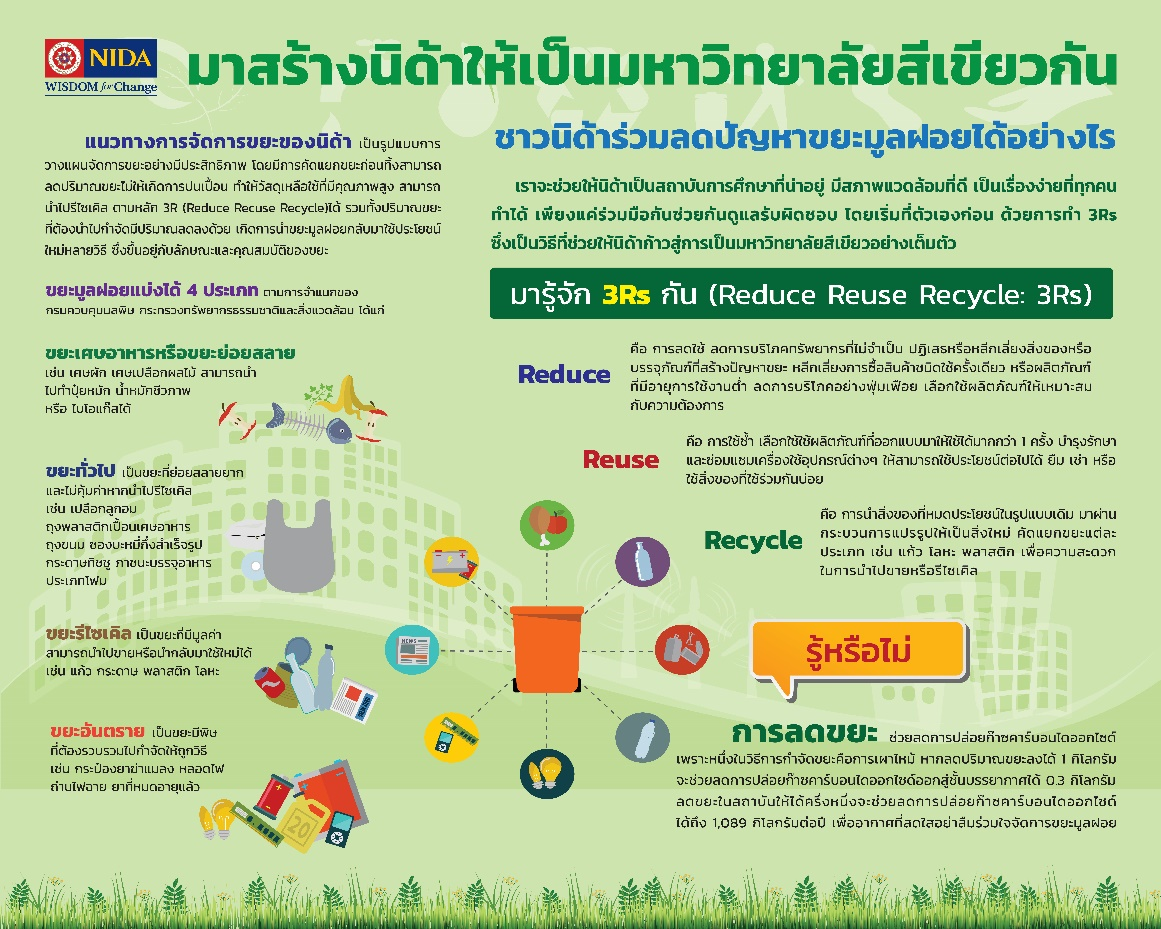
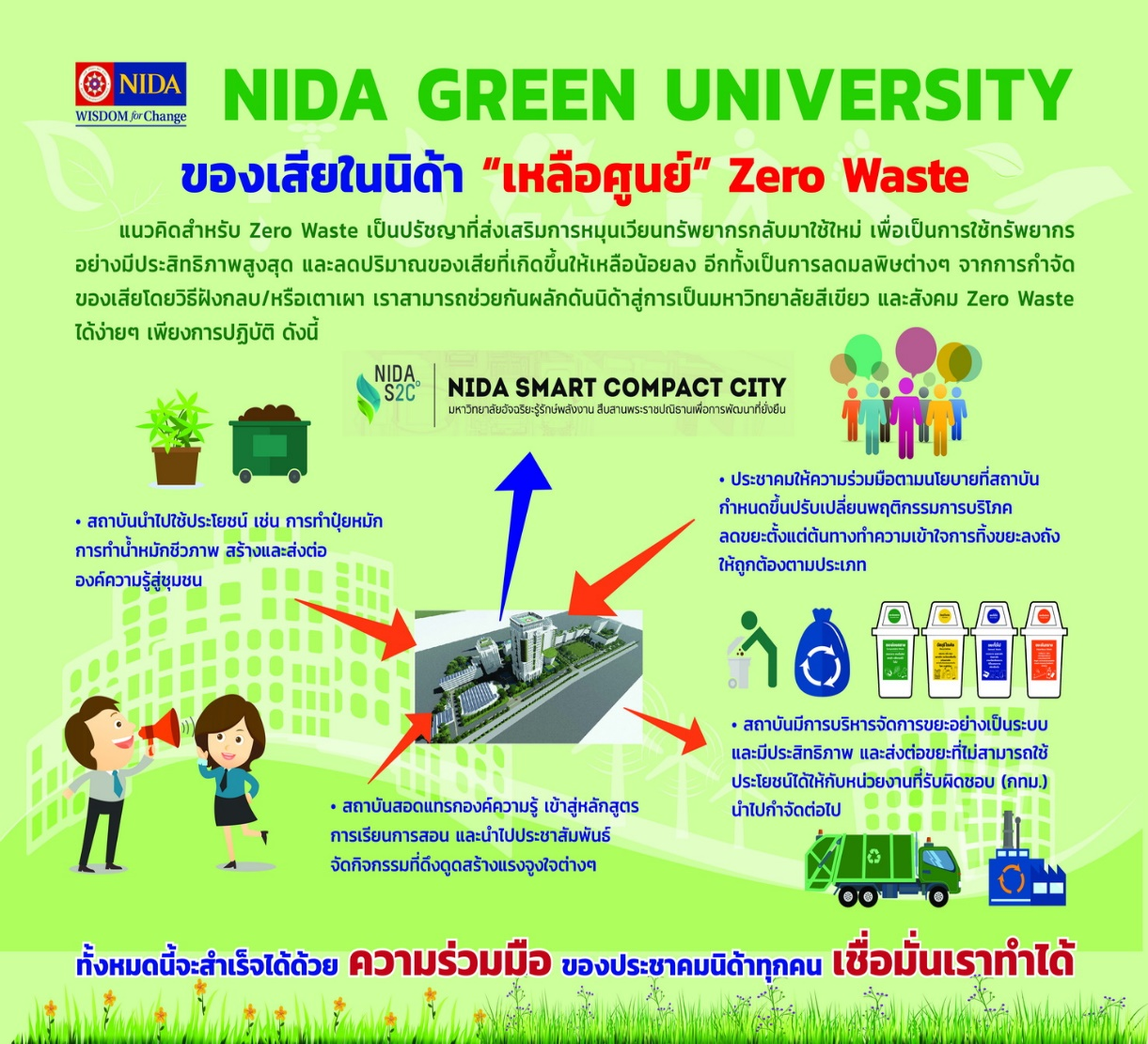
Since 2017, NIDA has started to separate all waste inside the institute into 4 types; biodegradable waste, general waste, recyclable materials and hazardous waste. Biodegradable waste can be used for bio-compos for organic fertilizer which is applied inside institute and distributed to nearby communities. Recycle waste type, such as plastic bottles, paper, and cans, is collected and sold. The housekeepers will take care of these recycle waste selling. The hazardous wastes are collected at the specific point each building and are transferred to BMA waste collector in order to eliminate properly.
Program to Reduce the Use of Paper and Plastic on Campus
1. NIDA has a policy of "Reduce and Reuse plastic bag”. With this policy, plastic bags in NIDA has been decreased up to 90% since 2017. Activities under the policy includes not giving plastic bags in convenience store unless it has been asked for, circulating cloth bags inside the institute and no use of any plastic products in NIDA canteen.
2. NIDA environment committee has processed different campaign for reducing waste in NIDA.
3. NIDA supports plastic glass uses in NIDA. At the institute, NIDA reduces use of thermal for drinking water and provides drinking water for refilling. Moreover, all NIDA organizations avoids from giving away bottles of water in the meeting. At coffee shop, there were reduction for ones who bring their glass with.
4. Solutions of reusable paper in back office, e.g. using 2-side of paper, well checking data before print, using online system instead of hard copy (e-doc).
5. NIDA has used ICS system which is database of all NIDA organizations which public documents are saved and can be accessed by authorized users in order to decrease paper use at NIDA.
Organic Waste Treatment
NIDA manages the organic waste. Food waste is separated from food centers by selling to buyers to use as animal feed. Other parts of Nida Food Center and the office are used to produce organic fertilizers and bio-fermented water to use as fertilizer for tree maintenance in the institution and for nearby communities.
Inorganic Waste Treatment
1. General waste within the institution is approximately 70% of the total waste. Collected Bangkok Metropolitan Administration (BMA) to eliminate properly.
2. Hazardous waste such as flashlights, bulbs, electronic devices are placed in provided location (hazardous waster point) of each building. They were collected by BMA to be disposed of via a process that is not harmful to the environment. All hazardous waste has been collected and BMA picks all up to eliminate in proper way including recycling plants and proper sanitary landfill.
Additional evidence link:
Toxic Waste Treatment
NIDA has set up drop off points for hazardous waste in every building. The location of it has been shown in different media making staffs and students recognize it. All hazardous waste has been collected and BMA picks all up to eliminate in proper way including recycling plants and proper sanitary landfill. NIDA management of hazardous waste is as follows;
1. Hazardous waste such as flashlights, bulbs, electronic devices The collection institutes are sent to Bangkok Metropolis for disposal via a correct process that is not harmful to the environment.
2. Infectious waste, such as bandages, syringes, etc. Infectious waste is separated from the nursing room. Collected and taken outside for proper disposal by the Bureau of Health, which is a hospital nearby.
Sewage Disposal
NIDA has a wastewater treatment system. Every building has own wastewater treatment system and dispute to the natural pool inside NIDA. At the pool so called “Phatthanara Water Park”, the oxygen has been filled with machine, before divert to natural water canal. Water inside the pool has been used for watering all plants and raising fish.


